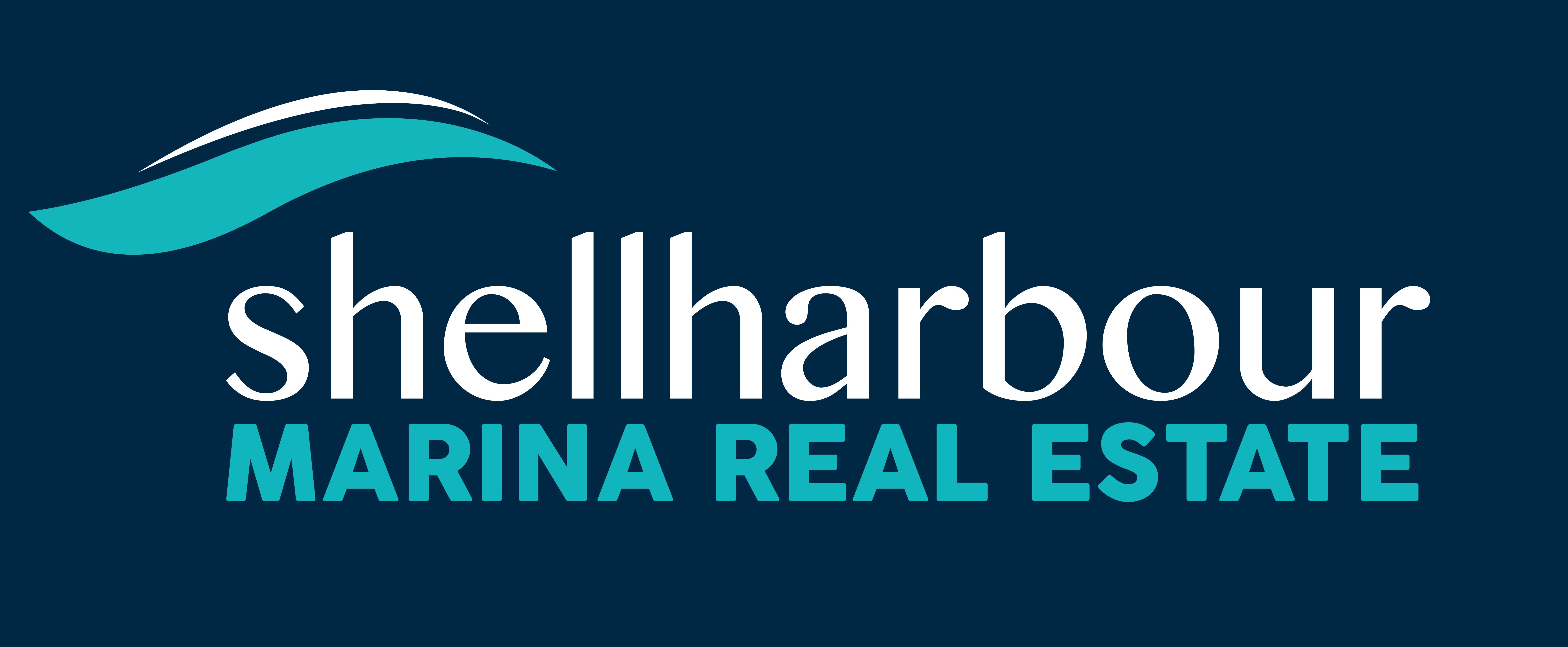
Jacqui Rowe
Senior Property Manager and Business Development Manager
Property management is a specialised area, governed by many sets of laws and constantly changing legislation that is designed to protect both the landlord and the tenant. Therefore, whether you’ve owned investment properties for years or you’ve just bought your first one, or it’s the first time you’ve appointed a property manager, there are bound to be some questions about how it all works.
Here are answers to some of the most common questions we get asked. If you have any further questions, or just want a chat or a rental appraisal for your property, please give us a call or email on 02 4295 1550 or rentals@shellharbourmarinarealestate.com.au as we would love to be able to assist you.
We are able to arrange everything on your behalf so you don’t need to even contact your current agent if you would prefer not to. We will ensure the changeover is stress free for you and your tenants. We will organise for the managing agent and tenant to be notified and for keys and paperwork to be collected from your current managing agent, and will manage a seamless transfer. Please contact us if you would like some more details on the service we provide and how to go about transferring management of your property.
Appropriate reference checks for a new tenant application are conducted by our property manager. We will contact the tenant’s previous landlord/managing agent and ask about rental payments, routine inspections, if any complaints have been made and any other relevant information. We also conduct reference checks to employers to confirm employment and ask for a number of documents as part of the application process from the tenant. We pride ourselves on putting forward the best tenant application for your property, as it’s important to choose the right tenant from the start.
Routine inspections are conducted every 3 months (up to 4 inspections in a 12 month period can be done) however this can vary from tenant to tenant and landlord to landlord. We will provide a copy of the inspection report including photos and will report any issues to the landlord including suggested routine maintenance and any repairs. We will follow up any issues with the tenant that need to be rectified after conducting the inspection and provide feedback on these issues to the landlord.
Under the rules set by Fair Trading NSW, rent can only be increased once every 12 months. The rent will be reviewed whenever a new tenant moves into the property and then each 12 months, to ensure the rent is at the current market value. 60 days written notice is required when issuing a rental increase. Further detail below is provided from Fair Trading NSW.
Rent increases
(1) The rent payable under a residential tenancy agreement may be increased only if—
(a) the tenant is given a written notice by the landlord or the landlord’s agent specifying the increased rent and the day from which it is payable, and
(b) the notice is given at least 60 days before the increased rent is payable.
(1B) The rent payable under a periodic agreement may not be increased more than once in any period of 12 months.
(2) This section extends to an increase in the rent payable under a residential tenancy agreement on renewal of the agreement as if the increase were an increase during the term of the agreement.
Rental payments are transferred into your nominated bank account at the middle of the month and end of the month, or at the end of the month if you choose only one payment per month. All invoices, bills and management fees are deducted from the rent prior to being transferred to you.
The water usage component of the water bill can be invoiced to the tenant for payment as long as certain criteria are met, details below have been taken from the Fair Trading NSW website.
(1) A tenant must pay the water usage charges for the residential premises, but only if—
(a) the premises are separately metered or the premises are not connected to a water supply service and water is delivered to the premises by vehicle, and
(b) the premises contain water efficiency measures prescribed by the regulations for the purposes of this section, and
(c) the charges do not exceed the amount payable by the landlord for water used by the tenant.
(2) A tenant is not required to pay the water usage charges unless the landlord gives the tenant a copy of the part of the water supply authority’s bill setting out the charges, or other evidence of the cost of water used by the tenant.
(3) A landlord must give the tenant not less than 21 days to pay the water usage charges.
Tenants are provided with emergency contact details for a plumber, electrician and locksmith for afterhours callouts and this is explained to them at the time of signing their lease, however if it can wait until the next business day they are encouraged to do so. If there are emergency roof leaks after hours the tenant is advised to contact the SES. All non-urgent repairs are to be submitted via email to the Property Manager. Repairs of a more general nature and on-going maintenance and upgrades to the property can be arranged by our in-house Property Maintenance Department.
Yes we can arrange payment of your invoices including water, council and strata rates. We will notify the relevant authorities for all accounts to be redirected to our office and paid from the rental income. We will provide you with a copy of the invoice when we email you the monthly statement that provides details on all incoming rent and outgoing expenses. All of these expenses are tax deductable.
Rent is required to be paid at least one week in advance, your Property Manager will advise you as soon as your tenant falls behind in their rent. If your tenant falls 14 days in arrears your Property Manager will serve them with a termination notice for non-payment of rent as they have broken the terms of the lease agreement. This notice gives the tenant another 14 days to vacate if the rent remains unpaid. If after the 14 days’ notice has expired your tenant has still not paid their rent or vacated the premises, your Property Manager will take the necessary steps to evict the tenant and recover the outstanding unpaid rent through an order lodged with the NSW Civil and Administrative Tribunal (NCAT). Once the tenant has been evicted any owing rent or damage to the property can be deducted from the 4 weeks bond and if needed through the landlord’s insurance policy. Information from the Fair Trading NSW website has been provided below.
Termination notices for non-payment of rent or charges
(1) A termination notice given by a landlord on the ground of a breach of the residential tenancy agreement arising solely from a failure to pay—
(a) rent, or
(b) water usage charges, or
(c) charges for the supply of electricity, gas or oil (utility charges),
payable by the tenant (a non-payment termination notice) has no effect unless the rent has, or the water usage charges or utility charges have, remained unpaid in breach of the agreement for not less than 14 days before the non-payment termination notice is given.
(2) A non-payment termination notice is not ineffective merely because of any failure of the landlord or the landlord’s agent to make a prior formal demand for payment of the rent, water usage charges or utility charges.
(3) A non-payment termination notice must inform the tenant that the tenant is not required to vacate the residential premises if the tenant pays all the rent, water usage charges or utility charges owing or enters into, and fully complies with, a repayment plan agreed with the landlord, unless the Tribunal makes a termination order on the basis that the tenant has frequently failed to pay rent, water usage charges or utility charges on time.
(4) Despite any other provision of this Part, a landlord may apply to the Tribunal for a termination order before the termination date specified in a non-payment termination notice. The Tribunal must not consider any such application until after the termination date.
Yes we strongly recommend that all landlords have landlord insurance as well as building insurance (if applicable) on their property. If you’re renting out your property in NSW, taking out landlord insurance can give you peace of mind that you’re protected should your property become damaged, or you incur financial losses from your tenants.
Without landlord insurance, you could face significant out-of-pocket expenses, not to mention the stress of having to repair your property if it becomes damaged. Similarly, if your tenants take off without warning, you could be left with the cost and inconvenience of unpaid rent. What might my landlord insurance cover me for? There are many different insurers offering landlord insurance in NSW. Policy inclusions will vary between these different providers, as well as the individual policies they offer.
Here are just some of the areas that may be covered by a landlord insurance policy:
(1) Accidental loss or damage to the property
(2) Malicious damage caused by tenants, their family or visitors
(3) Insured natural disasters such as fire, storm, rainwater, lightning and earthquake
(4) Loss of rent following damage to the property
(5) Rent default by tenant
Before deciding on a policy be sure to read the product disclosure statement (PDS) for information about coverage and limitations.
If you have any further questions at all please contact our Property Management Team, as we would love to be able to assist you with managing your rental investment.
